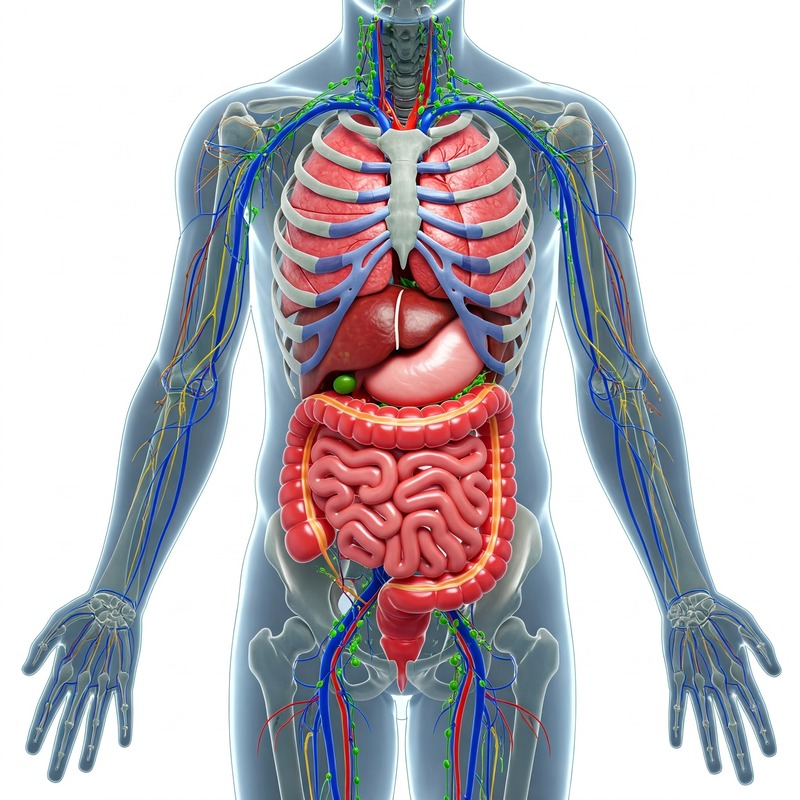Understanding inflammation helps individuals make informed decisions about diet, exercise, and lifestyle choices to minimize its impact.
Inflammation is a natural and essential part of the body’s immune response. It’s how your body defends itself against harmful invaders like bacteria and viruses and repairs damaged tissue. However, when inflammation becomes chronic, it can contribute to a variety of health problems. Understanding the causes, signs, and prevention strategies is crucial for maintaining optimal health.

What is Inflammation?
Inflammation is a complex biological response of the body’s immune system to harmful stimuli, such as pathogens, damaged cells, or irritants. It’s characterized by redness, swelling, heat, and pain. There are two main types of inflammation:
- Acute Inflammation: This is a short-term response to injury or infection. It’s a necessary process for healing.
- Chronic Inflammation: This is a long-term, persistent inflammatory response that can damage tissues and contribute to various diseases.
Causes of Inflammation
Several factors can trigger inflammation:
- Infections: Bacterial, viral, and fungal infections are common causes of acute inflammation.
- Injuries: Physical trauma, such as cuts, sprains, and fractures, can lead to inflammation.
- Auto-immune Diseases: In conditions like rheumatoid arthritis and lupus, the immune system mistakenly attacks healthy tissues, causing chronic inflammation.
- Exposure to Irritants: Exposure to chemicals, pollutants, and allergens can trigger inflammatory responses.
- Lifestyle Factors: Poor diet, lack of exercise, chronic stress, and smoking can contribute to chronic inflammation.
- Obesity: Excess body fat can release inflammatory cytokines.
Signs and Symptoms of Inflammation
The signs and symptoms of inflammation vary depending on the location and severity. Common signs include:
- Redness: Increased blood flow to the affected area.
- Swelling: Fluid buildup in the tissues.
- Heat: Increased temperature in the inflamed area.
- Pain: Resulting from the release of inflammatory mediators.
- Loss of Function: Difficulty using the affected area.
Systemic Inflammation Symptoms:
When inflammation affects the whole body, you might experience:
- Fatigue
- Fever
- Body aches
- Joint pain
- Skin rashes
- Digestive problems
How to Prevent Inflammation
Adopting a healthy lifestyle can significantly reduce your risk of chronic inflammation:
- Healthy Diet:
- Consume a diet rich in fruits, vegetables, and whole grains.
- Include omega-3 fatty acids from fish, flaxseeds, and walnuts.
- Limit processed foods, sugary drinks, and unhealthy fats.
- Incorporate anti-inflammatory foods like turmeric, ginger, and garlic.
- Regular Exercise: Engage in moderate-intensity exercise for at least 150 minutes per week.
- Maintain a Healthy Weight: Losing excess weight can reduce inflammation.
- Manage Stress: Practice stress-reduction techniques like yoga, meditation, or deep breathing.
- Get Enough Sleep: Aim for 7-9 hours of quality sleep per night.
- Avoid Smoking and Limit Alcohol: These habits can exacerbate inflammation.
- Stay Hydrated: Drink plenty of water throughout the day.
- Consider Supplements: Some supplements, like curcumin, fish oil, and vitamin D, may help reduce inflammation. However, consult with a healthcare professional before taking any supplements.
When to See a Doctor
If you experience persistent or severe inflammation, it’s essential to seek medical advice. A doctor can diagnose the underlying cause and recommend appropriate treatment.
Conclusion
Inflammation is a vital part of the body’s defense system, but chronic inflammation can have detrimental effects on health. By understanding the causes, recognizing the signs, and adopting preventive measures, you can promote overall well-being and reduce your risk of inflammation-related diseases.
